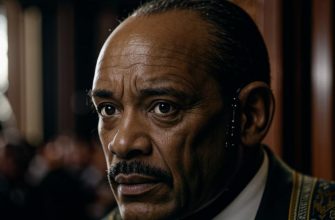“To Kill a King”, 2003
Director: Mike Barker

Although not solely focused on Cromwell, this film, directed by Mike Barker, offers a glimpse into his role during the aftermath of the English Civil War. It stars Tim Roth as Cromwell and Dougray Scott as Sir Thomas Fairfax, exploring the conflict between the two leaders over the fate of King Charles I and the future direction of England. The film delves into the moral and political dilemmas faced by the protagonists, highlighting the ideological rifts within the victorious Parliamentarian faction.
Starring: Tim Roth, Dougray Scott, Olivia Williams, James Bolam, Corin Redgrave, Finbar Lynch, Julian Rhind-Tutt, Adrian Scarborough, Jeremy Swift, Rupert Everett;
Production year: 2003;
Genre: drama, war, biography, history;
Age: 12+;
Duration: 102 min.;
Rating: IMDB: 6,2;
More information about the film “To Kill a King” on the website imdb.com
While these are some key films that cover the life and influence of Oliver Cromwell, the character has also made appearances in various other films, TV series, and plays where the English Civil War and its repercussions are depicted. These works contribute to the complex tapestry of historical interpretation surrounding one of Britain's most enigmatic and divisive figures.
In summation, films about Oliver Cromwell and the transformative period he embodied, serve not only as historical narratives but as deep explorations into the complexities of power, ideology, and human resilience. Through a kaleidoscope of cinematic techniques, these films bring to life the tumultuous era of the 17th century English Civil War and the polarizing figure of Cromwell himself. Whether viewed as a tyrant or a reformer, Cromwell's cinematic portrayal has consistently provoked thought, debate, and an appreciation for the intricate tapestry of human history. The remarkable ability of these films to captivate audiences, educate them about a pivotal moment in British history, and invoke reflection on the nature of leadership and the price of revolution, underscores their enduring significance. As we move further away from the events they depict, these cinematic works remain vital, ensuring that the legacy of Cromwell and the era he shaped continues to resonate in the collective consciousness.









